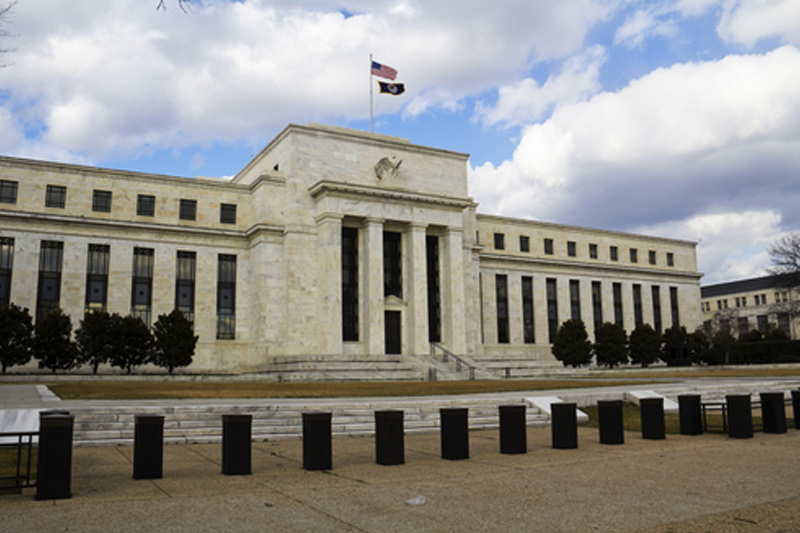By Geoffrey Smith
Investing.com -- It's Fed day, and Chairman Jerome Powell will have to explain his colleagues' decisions in the immediate aftermath of what are expected to be weak retail sales numbers for August. Snowflake's strong IPO keeps stock market sentiment buoyant. Facebook (NASDAQ:FB) gets a double-whammy from the FTC and Kim Kardashian. Yoshihide Suga is Japan's new prime minister but he's expected to continue most of the old one's policies. The EU is going even greener, at a price, and oil prices rebound after a big drop in U.S. inventories catches the market on the wrong foot. Here's what you need to know in financial markets on Wednesday, September 15th.
1. Fed meeting concludes, with retail sales slowdown in focus
The Federal Reserve wraps up its regular two-day policy meeting, with the publication of its post-meeting statement at 2 PM ET (1800 GMT), and Chairman Jerome Powell’s press conference half an hour, as usual.
No policy changes are expected, but the Fed will update its economic forecasts, including a first forecast for 2023. Powell is also likely to be pressed on how he intends to sustain a recovery in inflation, against a backdrop of high unemployment and depressed consumer spending.
Before Powell’s press conference, the U.S. will release its August retail sales numbers, the first since the enhanced unemployment benefits scheme expired without replacement at the end of July. Sales growth is expected to slow to 1.0% on the month from 1.2% in July.
2. Yen hits two-month high as Suga takes over as PM
The yen rose to its highest since July as Yoshihide Suga was confirmed at the new Prime Minister of Japan.
By 6:30 AM ET, the dollar was down 0.4% at 105.05 yen.
Suga has promised economic reform, but as a 71 year-old who served for a long time under his predecessor Shinzo Abe, most analysts expect a continuation of most of Abe’s policies.
The yen’s strength is in part tied to the general recovery in the Asian-Pacific economy that is being driven by China. The yuan hit a new 16-month high overnight, while the Taiwanese dollar and Korean won have also strengthened. The yen’s rise is also due to the general weakness in the dollar since Fed Chairman Jerome Powell announced the Fed would adopt a higher tolerance of inflation in future, analysts say.
3. Stocks set to extend gains as Snowflake keeps the mood buoyant; double-whammy for Facebook
U.S. stock markets show no sign of letting the Fed meeting get in the way of a strong rebound after last week’s volatility. They’re set to open up for a third straight day, with all three major index futures advancing roughly in line, after a strong IPO pricing for cloud software company Snowflake.
By 6:30 AM, the Dow 30 futures contract was up 136 points, or 0.5%, while the S&P 500 Futures contract and NASDAQ Futures were up 0.6%.
That’s despite some notable single-stock losses: Facebook (NASDAQ:FB) stock was marked down 1.4% after a report that the Federal Trade Commission is preparing an antitrust investigation, which in turn followed news of a mass boycott of its Instagram platform by Kim Kardashian and other high-profile celebrities and influencers.
Boeing (NYSE:BA) stock was indicated down 0.1% after a damning House report into the 737 MAX sharply criticized it for cutting corners in getting the aircraft certified.
4. Europe tightens the screws on fossil fuels
The European Union’s top bureaucrat unveiled plans to cut carbon dioxide emissions further and faster than planned in a keynote ‘state of the union’ speech that laid out how Europe should recover from the pandemic.
The EU is now targeting a 55% reduction in CO2 emissions from the 1990 baseline by 2030, rather than the 40% cut previously targeted. That means a more aggressive timetable for phasing out fossil fuels from the electricity and transportation value chains, and, almost certainly, higher prices in Europe’s Carbon Emissions trading program.
Stricter environmental rules are also a likely precursor to attempts to impose a Carbon Border Tax on imports in the longer term, a way of tying market access for trade partners to their own environmental performance.
5. Oil prices rebound on U.S. inventory plunge
Oil prices rebounded sharply after a surprising and sharp drop in U.S. inventories, as reported by the American Petroleum Institute, caught the market wrong-footed.
By 6:40 AM ET, U.S. crude futures were up 2.2% at $39.13 a barrel, while the international benchmark Brent contract was up 2.0% at $41.34.
The API had estimated U.S. crude stockpiles fell by 9.5 million barrels last week, confounding expectations for a rise of 2.0 million barrels. If corroborated at 10:30 AM ET by the government’s data, that could banish some of the worst fears about a faltering rebound in global fuel demand.
